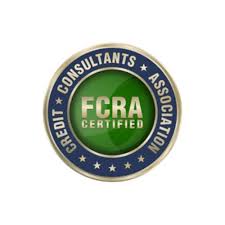
Fcracertified
Uploaded on Jun 26, 2025
Category
Business
Learn how to navigate the Fair Credit Reporting Act (FCRA) with confidence. This specialized training empowers credit repair professionals to understand legal boundaries, handle disputes lawfully, and advocate for clients’ credit rights—all while staying fully compliant with federal regulations. https://fcracertified.com/
Category
Business
FCRA Fundamentals: Compliance Training for Credit Repair Experts
Mastering Credit
Ethics: Why FCRA
Training is a Must
for Credit Repair
Specialists
In the fast-growing credit repair industry, professionals are expected to not only
provide accurate advice but also ensure they remain compliant with key
regulations that protect consumers. At the heart of ethical and compliant credit
repair practices lies the Fair Credit Reporting Act (FCRA), a cornerstone law that
governs how consumer credit information is handled. For credit repair
specialists, proper FCRA training isn’t just a good idea — it’s essential for legal
compliance, credibility, and long-term success.
What is the FCRA?
The FCRA is a federal law enacted in 1970 that promotes the accuracy,
fairness, and privacy of information in the files of consumer reporting agencies.
It governs how credit information is collected, distributed, and used. It also
gives consumers specific rights regarding their credit reports, including the
ability to dispute inaccurate or outdated information.
For credit repair specialists, this law is central to nearly every aspect of their
work. From writing dispute letters to communicating with credit bureaus and
creditors, FCRA knowledge directly impacts how effectively — and legally —
these tasks are carried out.
Why FCRA Training Matters
1. Avoid Legal Pitfalls:
Without proper training, specialists risk
making mistakes that could violate
federal law. For example, submitting
frivolous or misleading disputes could
result in penalties or lawsuits — not only
damaging your business but also
harming your clients.
2. Build Trust with Clients:
Consumers seeking credit repair are often
vulnerable and confused about their rights. A
specialist with FCRA training is in a position to
educate clients and provide trustworthy, compliant
solutions. This transparency builds long-term
relationships and enhances your reputation.
3. Improve Dispute Success Rates:
Understanding the nuances of the FCRA helps you
craft stronger, more effective disputes. Instead of
relying on templates, trained specialists can identify
specific violations or inconsistencies in reporting,
increasing the likelihood of successful outcomes
4. Stay Ahead of Industry Standards:
As regulatory scrutiny increases, especially in the credit
and financial services industry, having documented FCRA
training can differentiate your practice and signal
professionalism to both clients and partners.
How to Get Trained
Several organizations and platforms offer FCRA training
courses tailored specifically for credit repair specialists.
Look for programs that offer:
⦁ Comprehensive coverage of FCRA basics and advanced
topics
⦁ Real-world examples and case studies
⦁ Certification upon completion
⦁ Ongoing updates and resources as laws evolve
.
Final Thoughts
In an industry where misinformation and shortcuts are
common, FCRA training equips credit repair professionals
with the knowledge and confidence to do things the right
way. It’s not just about compliance — it’s about offering real
value to clients while protecting your business. Whether
you're just starting out or looking to enhance your
expertise, investing in FCRA training is a step every serious
credit repair specialist should take.
https://fcracertified.com/

Comments